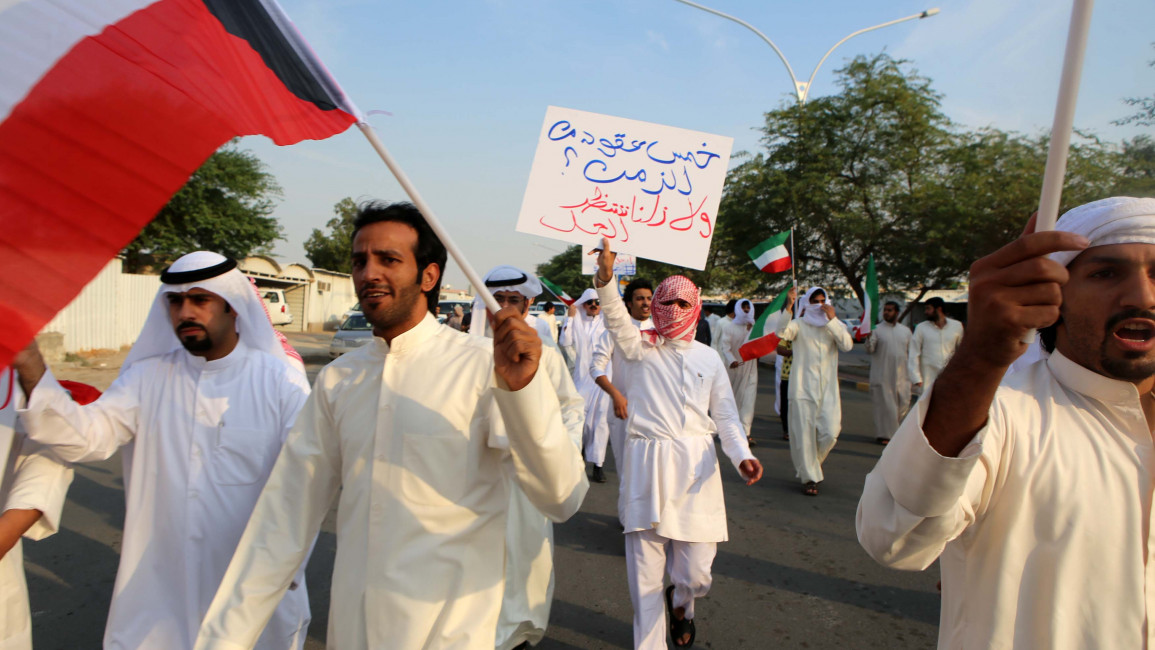Stateless 'bidoon' child expelled from Kuwaiti school, sparking controversy
A girl from Kuwait's "bidoon" - or "stateless" - community has been barred from school due to lacking documentation, according to local reports.
The first-grade student was expelled from the public school due to not having a valid residence permit or passport, Kuwaiti media reported on Monday.
Members of the "Bidoon" community not only lack passports but also residency documents, making it difficult for them to access public services, including schools and healthcare.
"The minister of education must return this child to the school bench," tweeted Kuwaiti MP Mubarak Al-Saifi, who called for an official investigation into the case. "And we will work to pass the Civil Rights Act for the Bidoon," he added.
تحدث للتو مع والدة الطفلة البدون التي قامت وزارة التربية بتصرف لا يليق فيهم
— الصيفي مبارك الصيفي (@AlsaifiAlsaifi) October 31, 2021
الطفلة منذ بداية العام الدراسي وهي طالبة بهذه المدرسة ومن غير المعقول اخراجها بهذا الشكل وكسر خاطرها
لذلك على وزير التربية ارجاعها الى المقاعد الدراسية
و سنعمل على اقرار قانون الحقوق المدنية للبدون
Tens of thousands of stateless persons known as the "bidoon" - from the Arabic "bidoon jinsiyya" or "without nationality"- live in Kuwait.
They suffer from legal discriminations and lack of access to basic rights to health, marriage, education and work. Due to their lack of citizenship, they struggle to obtain basic documentation and access social services.
Bidoon children are theoretically exempted from fees in public schools but face difficulties enrolling in educational institutions.
Poverty and negligence towards their community has pushed many children to work in the informal sector and on the streets.
Official statistics estimate their population in Kuwait at 85,000, but activists say the number could be as high as 200,000.
Most were born in Kuwait and belong to families who have lived in the Gulf state for generations. The bidoons claim descent from nomadic Bedouin communities that once roamed freely across the region, and who failed to apply for citizenship when Kuwait got its independence from the UK in 1961.
Kuwait claims that most stateless residents are illegal migrants hiding their nationalities. Over the past two years, authorities have intensified pressure on the community to "reveal their country of origin" or accept an "assigned citizenship" based on investigations by Kuwaiti state security services.
As part of these pressures on the minority, hundreds of bidoons lost access to their bank accounts over the past few months, and a spate of suicides and suicide attempts have been recorded in the community.



